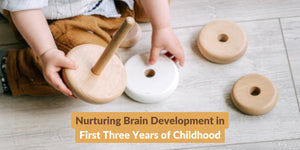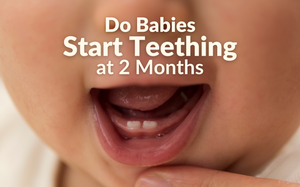Since the day your baby was born, you and your family members are the only people your baby recognizes. Your baby may become extra fussy, quiet, or start crying when he is afraid of strangers. The anxiety when he/she sees someone new is called "fear of the stranger" or "stranger anxiety." Stranger danger in babies is commonly seen and expected in child development. Separation anxiety in babies is usually intense when your baby is between seven and ten months of age and lasts for a few months or longer. This anxiety is the very first emotional milestone achieved by your baby.
7 Tips For Parents To Help Your Baby To Overcome Stranger Anxiety
Although anxiety and stranger danger in babies is normal, here are some tips on how to overcome stranger anxiety in babies:- When your baby is meeting new people, hold hands with your baby and have him/her sit in your lap.
- Prepare and excite the baby before you introduce them to others. Instead of a surprise meeting, a prepared meeting is better where the baby anticipates meeting someone new.
- Never ignore your baby’s fear. This will make your baby more upset and fearful.
- Make sure you introduce new people in your baby’s comfort zone (e.g., at home) or take his/her favourite blanket or toys if meeting new people in a new setting. This will make your child less anxious.
- Always be patient and never push your baby to meet someone when they are not ready.
- Babies copy adults. When you are with your baby, show them that you are not afraid of people. Greet everyone with a positive attitude and a warm smile. Keep introducing new people to your baby. The more new people your baby meets, the more they will become comfortable.
- Before you plan to leave your baby with a babysitter, give them some time to get comfortable around the babysitter. Assure them that they will be safe. Talk to them and tell them when you will return and how much you love them. Never leave suddenly. Spend some time with them before leaving. When you return, play with your baby or read a book together.
Most of the time, this separation anxiety in babies passes, and children adjust better to new people around the age of two. If a child's fear lasts longer than expected, try to work on his or her independence. Here are tips to deal stranger anxiety in babies:
- Let your child self-feed.
- Let them entertain themselves with new toys and explore new play environments.
- Keep giving your baby new experiences and introducing them to new people.
- Let your kid solve his or her problems by themselves.
- Let them sleep on their own.
If extreme stranger anxiety in infants is still not relieved, then you can talk to your paediatrician or visit a specialist anxiety clinic.
Separation anxiety in babies can be a challenging period for both you and your baby because the baby becomes more fussy, extra clingy, and unsociable. When it comes to babies, never rush them to do anything. Every baby is different. Your baby may need some more tcime than others, which is perfectly okay. You need to understand them, comfort them, and stick with them. With the right amount of warmth and time, your baby will be ready to meet the world!
References:
- Raisingchildren.net.au. Fear of strangers: babies and young children [2020].
- Healthychildren.org. Emotional and social development: 8 to 12 months [2020].













LEAVE A COMMENT